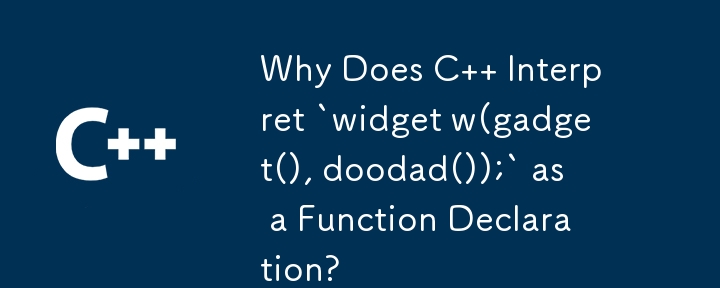

C 's Most Vexing Parse: A Deeper Examination
The infamous "most vexing parse" in C has puzzled many developers, particularly when it comes to distinguishing function declarations from variable declarations. A common example that illustrates this issue is:
widget w(gadget(), doodad());
While the first expression widget w() is clearly a function prototype, the second expression widget w(gadget(), doodad()); may be confusing at first glance. How can it be interpreted as a function declaration?
Function Argument Type Decay
The key to understanding this lies in the concept of argument type decay. In C , arguments of type array decay into pointers to the first element, and arguments of type function decay into function pointers. Therefore, the signature of the function in the provided example can be rewritten as:
widget w(gadget(*)(), doodad(*)());
This reveals that the function takes two arguments:
The function itself returns a widget.
Even More Confusing Cases
The "most vexing parse" can present even more perplexing cases. For instance, consider the following code:
widget w(gadget(x));
where x is a predefined variable. Surprisingly, this can be interpreted as a function declaration as well. In C , variable declarations can include additional parentheses, which does not change the semantics. Thus, the declaration gadget x; and gadget (x); are equivalent. This implies that the code above is declaring a function that takes a single argument named x of type gadget and returns a widget.
This phenomenon underscores the importance of carefully considering the context when parsing C code. The "most vexing parse" represents a common pitfall that can lead to unexpected behavior, making it crucial for developers to be aware of its implications.
The above is the detailed content of Why Does C Interpret `widget w(gadget(), doodad());` as a Function Declaration?. For more information, please follow other related articles on the PHP Chinese website!




